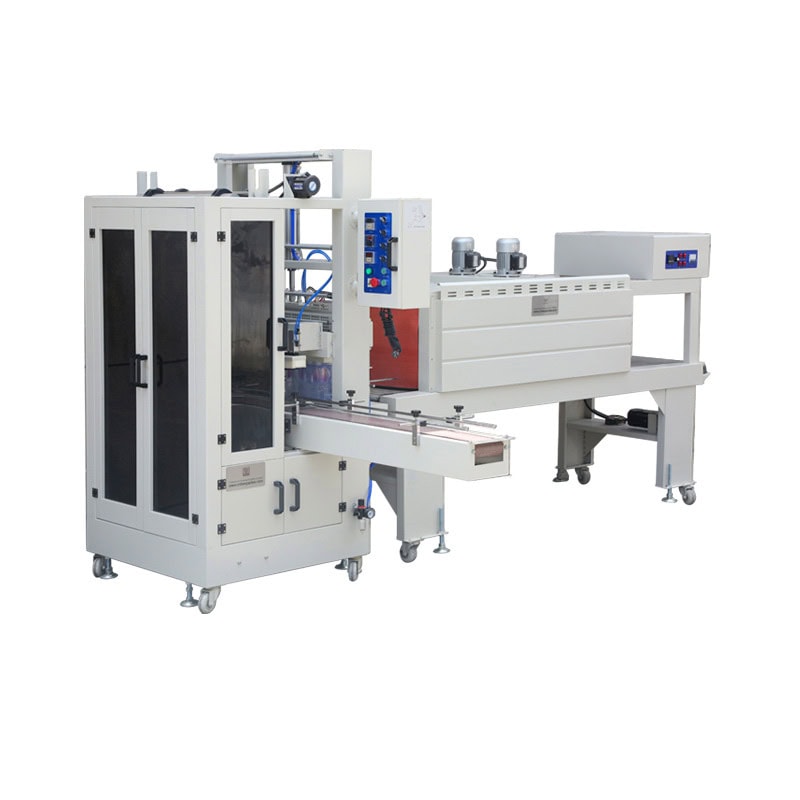Picking the wrong machine will cost you money and make your customers mad. I’m going to help you figure out how to pick the right machine.
To choose the right packaging machine, consider factors like machine compatibility with product types, production speed, packaging materials, machine flexibility, cost, and vendor support. These ensure efficient packaging and high-quality output.
Let’s dive deeper into the key considerations for choosing the best packaging machine.

Determine Your Product and Packaging Needs
You need to know what kind of stuff you’re putting in the package when you pick a machine. Different things need different machines, like vacuum sealing for perishable stuff or bottle filling for liquids. Look at your product to see how big it is, how heavy it is, and what you need to do to protect it.
Also, think about what your package is going to look like. Some machines only work with certain types of materials like plastic film or cartons, while others will work with a bunch of different stuff. Figuring out what you need will help you pick the right machine.
Evaluate Production Capacity and Speed
The speed at which you need to produce stuff will help determine what kind of machine you need. Different machines work at different speeds, usually measured by how many packages they can make in a minute. If you need to make a lot of stuff, you need a high-speed machine. If you need to make a little bit of stuff, a moderate-speed machine might work for you.
Consider how much stuff you’re going to make in the future when you pick a machine. If you can get a machine that will do more stuff, you won’t have to buy a new machine as soon.
Check for Flexibility and Customization Options
In today’s competitive environment, packaging designs and formats constantly evolve. Your packaging machine should offer adaptability to cater to these changes. Look for machines that offer flexibility in terms of packaging sizes, shapes, and materials, ensuring you can meet shifting market demands.
Some packaging machines feature modular components, allowing for easy upgrades or adjustments without needing to purchase entirely new systems. This flexibility ensures your investment remains valuable as your packaging needs evolve.
Consider the Type of Packaging Materials
Packaging machines are designed to handle specific materials, such as plastics, paper, aluminum, or biodegradable packaging. Matching the machine to the type of material you intend to use is critical. For instance, food items often require strong, moisture-resistant packaging, while sustainable businesses may prioritize eco-friendly materials like compostable films.
Ensure that your chosen machine processes the material efficiently without compromising the packaging’s integrity or quality. This helps maintain product protection and meets regulatory or brand-specific packaging standards.
Evaluate the Total Cost of Ownership (TCO)
While the upfront cost of a packaging machine is important, it’s equally essential to consider the total cost of ownership (TCO). TCO includes ongoing expenses like maintenance, repairs, energy usage, and operational efficiency. Machines with lower initial costs may end up being more expensive in the long term if they require frequent repairs or consume large amounts of energy.
Calculate these expenses to ensure you’re making a cost-effective decision. Investing in a slightly higher-priced machine with better reliability and energy efficiency could lead to significant savings over time.
Ensure Ease of Operation and Maintenance
A packaging machine should be easy to operate and maintain to minimize downtime and keep production running smoothly. Choose machines with user-friendly interfaces and straightforward maintenance processes, so your staff can quickly troubleshoot any issues or perform regular upkeep.
Machines equipped with automated cleaning, lubrication, or self-diagnostic features reduce manual labor and extend the equipment’s lifespan. Comprehensive training and after-sales support from the vendor are additional factors to consider for the machine’s ease of use.
Supplier Reliability and Support
The reliability of the supplier is as important as the quality of the machine itself. Look for a supplier with a solid track record in providing both high-quality packaging machines and excellent customer support. A reliable supplier will provide quick access to spare parts, technical assistance, and training services.
Research customer reviews and ensure the supplier has a strong support network in place. This is especially important for businesses operating in industries where any production delays could lead to significant financial losses.
Industry-Specific Certifications and Compliance
If you’re operating in a regulated industry such as food or pharmaceuticals, it’s crucial to choose a machine that meets all relevant industry standards and certifications. For example, packaging machines should comply with certifications such as ISO, FDA, or CE, depending on your specific industry.
Adhering to these regulations ensures the safety and quality of your packaged goods. Failure to comply could lead to costly legal consequences, product recalls, or harm to your company’s reputation.
Scalability for Future Growth
As your business expands, your packaging needs will likely change. It’s essential to select a packaging machine that can grow alongside your business. Machines with scalability features, such as handling increased production volumes or integrating with other equipment, are valuable assets.
This foresight will save you from making costly equipment replacements in the future. Modular packaging machines that allow for simple upgrades or add-ons are particularly useful for businesses planning for future growth.
Consider Sustainability and Environmental Impact
Sustainability is becoming a crucial factor in packaging decisions. Opting for a packaging machine that aligns with your company’s sustainability goals, such as reducing material waste or lowering energy consumption, can improve your environmental footprint.
Some machines are designed to process eco-friendly packaging materials, like biodegradable or recyclable films. Additionally, energy-efficient machines can help reduce operational costs while appealing to environmentally conscious consumers. Packaging sustainability not only helps the environment but can also enhance your brand image.
Summary
Choosing the right packaging machine involves considering factors like product needs, production speed, cost, flexibility, and supplier reliability to ensure long-term efficiency and sustainability.









